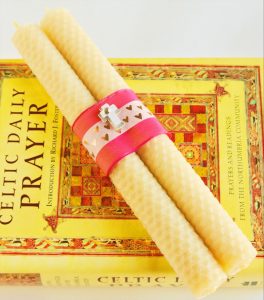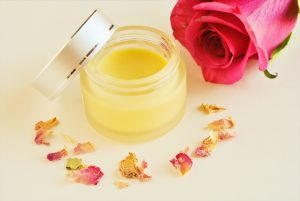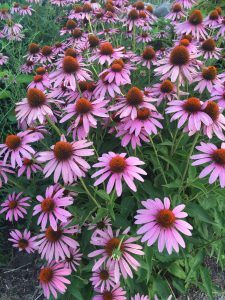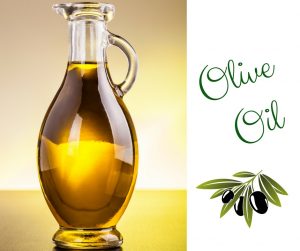Essential Oils in the Bible, Part 3
In Essential Oils in the Bible Part 1 and Part 2, we looked at whether using essential oils and botanicals are a viable option and how they were used during Bible times.
In this post, we are going to look at ways Christ-followers can use botanicals and biblical oils today in their faith practice.
Quick Definition of Aromatherapy
First of all, I want to start by defining aromatherapy: “the art and science of using essential oils for physical and emotional healing.” This is where I differ with many of the mainstream aromatherapy teachings today. They also say that EOs can heal us spiritually, but I disagree with that. Oils help us emotionally because they work in our limbic system through inhalation and can help with stress, depression, and anxiety. And they can help us physically as they relieve inflammation and pain and other assorted ailments, but I believe that only God has the power to heal us spiritually.
Now let’s look at some practical ways to use these oils in our faith practice.
As a precursor to devotion time.
If we are full of stress, diffusing essential oils can help alleviate that. Oils such as sweet orange, grapefruit, lemon, tangerine, frankincense, lavender, bergamot, Roman chamomile, geranium, jasmine, rose, vetiver, cypress, sandalwood, and ylang ylang can help us relax just so we are better able to receive from the Lord what He has for us during our time of Bible reading and study.
In Isaiah 61:3 God says, “To console those who mourn in Zion, to give them beauty for ashes, the oil of joy for mourning, the garment of praise for the spirit of heaviness; that they may be called trees of righteousness, The planting of the Lord, that He may be glorified.”
Proverbs 27:9 says “Perfume and incense bring joy to the heart.”
During Ministering Prayer.
If you are part of a prayer ministry at your church or just on your own, and you pray over other people, you can anoint them with oil as you pray just as James 5 instructs us.
How To Make an Anointing Oil
- Take a small glass vial or perfume bottle of 1/3 oz or 1/2 oz size and fill with olive oil.
- Add 3 drops of frankincense oil and shake lightly to mix.
During Personal Prayer.
During personal prayer you may want to diffuse some essential oil if that helps you to better focus on the Lord. One obvious choice would be frankincense, or you could purchase an “adoration” blend, which would be a synergy of several essential oils such as frankincense, ylang ylang, and lavender.
Prayer Beeswax Candles
Another idea is to use a botanical beeswax candle while you are praying. Sometimes you may be
discouraged in praying for a request when you have not seen any progress. I had the idea of lighting a taper candle while I was praying for these requests as a type of “covenant” with God that I would keep praying for them. Blow out the candle at the end of your prayer session. This also serves the purpose of giving you an actual visual reminder to pray. And as the candle gets smaller and smaller, you’ll be reminded of how much you have prayed.
I love this verse: Psalm 141:2 : “May my prayer be set before You like incense; may the lifting up of my hands be like the evening sacrifice.”
Diffuse Uplifting Oils as You Sing Praise Music to God.
Any of the essential oils for stress listed above would be wonderful.
Other favorite verses: 2 Corinthians 2: 14-16 14 Now thanks be to God who always leads us in triumph in Christ, and through us diffuses the fragrance of His knowledge in every place. 15 For we are to God the fragrance of Christ among those who are being saved and among those who are perishing. 16 To the one we are the aroma of death leading to death, and to the other the aroma of life leading to life. And who is sufficient for these things?
Finally, the Bible tells us that our bodies are now the dwelling place of God. His Spirit dwells in each one of us instead of now residing in the tabernacle. We should care for our bodies in a way that would make a fitting place for the Holy Spirit to reside. Essential oils help us care for our bodies through the use of botanical creams, balms, oils, perfumes, and so on that are made with essential oils and herbs.
Recipe for Today
If you’d like to try a DIY recipe using frankincense and myrrh, here’s a simple one you can mix up using either an unscented cream or oil.
Frankincense and Myrrh Skin Blend
- 2 ounces unscented cream or vegetable oil, such as sweet almond oil, fractionated coconut oil, regular coconut oil, or olive oil
- 2 drops of Roman Chamomile Essential Oil
- 7 drops of Frankincense Essential Oil
- 9 drops of Myrrh Essential Oil
- 18 drops of Lavender Essential Oil
Mix the synergy of all your essential oils together first. You can use a small shot glass or other glass or ceramic vessel. Don’t mix them in plastic. Stir the synergy into the cream or oil and mix well. Once the synergy has been mixed into an oil or cream, it can then be stored in a plastic or glass container. Smooth onto skin as needed.
I hope you’ve enjoyed this three-part series on essential oils in the Bible. Please leave any comments or questions below. I’d be happy to answer them.
Botanically Me,
Note: As always, the information here is for your personal use and not meant to replace your health professional’s advice. Use essential oils with caution. Pregnant and nursing women should check with their doctor or midwife or a certified aromatherapist before using. You can check any interactions with medications you may be taking on WebMd.com. Links in this post to products are products that I make and sell in my personal Etsy shop. You can also most likely find similar products in stores in your local area.






